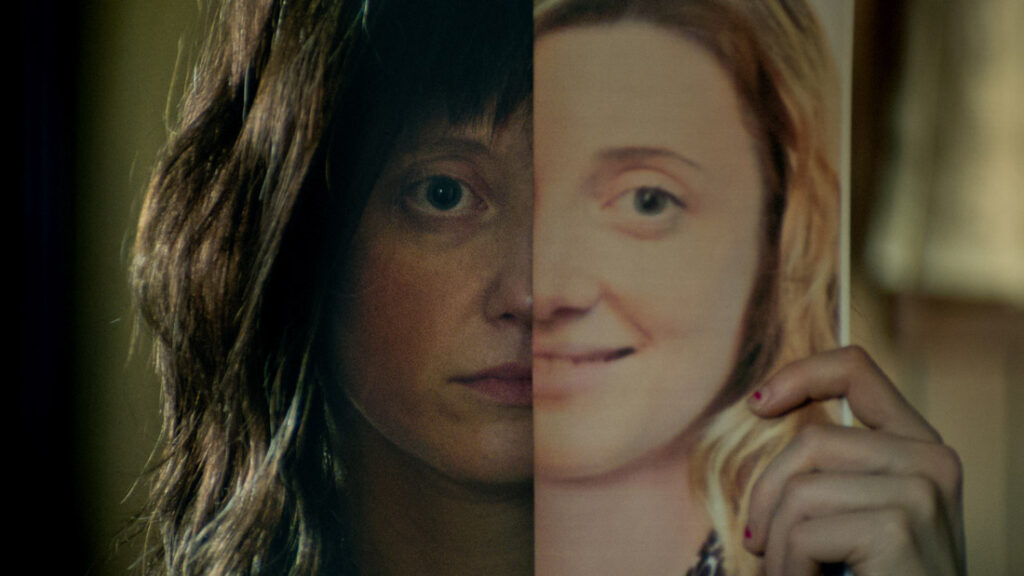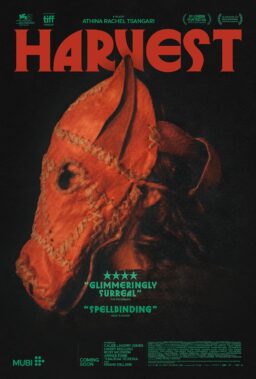One of Sundance 2018’s biggest MVPs is actress Andrea Riseborough, who can be seen in four films playing at the festival, three of them World Premieres. While she proves a strong presence in fellow US Dramatic Competition title “Burden” and in Midnight category godsend “Mandy,” Riseborough can be seen the most in the glum, hazy character study “Nancy.” It’s the best display at Sundance of her abilities to challenge viewers, and a testament to how much she can carry a film with so much emotional weight.
Writer/director Christina Choe earns points off the bat for her ambitious narrative concept: to stick audiences with a woman who is unsympathetic, selfish and untrustworthy in a lot of ways, and watch her do something very cruel to people who are also hurting. In this case, Riseborough’s Nancy is presented as a lonely woman with jet black hair and wide eyes, who receives numerous manuscript rejection letters in the mail and takes care of her sick mother (Ann Dowd). Mysterious but clearly broken, Nancy lies in order to get close to people—she even fakes being pregnant to make a guy she meets online happy, which only destroys their friendship when he soon finds out the truth.
By the end of the first act, Nancy is completely alone, but learns about a couple, Ellen and Leo, (played by J. Smith-Cameron and Steve Buscemi, respectively) who lost a child 30 years ago. A police rendering of what the child might look like shares resemblances to Nancy’s face, which proves to be all the logic she needs. Nancy decides she will try to convince the couple that she thinks she’s their long-lost daughter, and was kidnapped at a young age. It’s an incredibly not-sound idea, given the mere existence of DNA testing, but the film does not concern itself with the impending truth. “Nancy” is much more about the reason of what would compel such a hurtful act, and the desperation that we have to fill the voids within us.
Nancy proves to be self-destructive and oh so lonely, but Riseborough, under Choe’s delicate direction, gives Nancy a type of poker face. She is blank, self-preserving, with her sincere disinterest in forward-thinking is the film’s expression of her desperation. Nancy knows the truth will eventually come out, but would rather have the stolen time with them than none at all. Riseborough establishes a low-key, performative sense to Nancy, a barrier that only comes down during one of the film’s most stressful scenes, when she loses Paul, her cat.
As Nancy slowly ingratiates herself into the lives of Ellen and Leo, they welcome her like a houseguest they hope is their daughter. Smith-Cameron and Buscemi provide vividly wounded performances, as people who mediate hope while living with a tragedy that few can imagine. Even with these characters, “Nancy” has a restraint with its emotional force that makes it stand out, and certainly polarizing. They become more endearing, while Nancy less and less so. Here are people experiencing a nightmarish pain: can you abide by someone then getting their hopes up for the first time in decades?
Choe’s script deals greatly in sadness, but it’s just too cold to work fully on an emotional level. The movie will not break your heart, especially since everything is already broken here. But “Nancy” has an intellectual savviness to its sadness that works, as it challenges viewers on their compassion and ability to recognize something within someone who is so lost. “Nancy” does not provide warmth, but it does give them a definitively strong performance and a noteworthy directorial debut.












